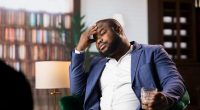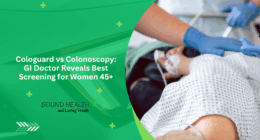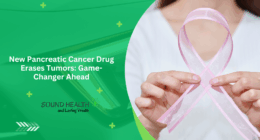How Christopher Rich Overcame a Stroke with Therapy, beloved for his role as Brock Hart on the hit sitcom Reba, has faced a life-altering challenge that tested his resilience and reshaped his outlook. In 2018, the actor suffered a massive stroke, an event that could have ended his story but instead became a testament to his determination and the power of modern medicine. Today, he’s not just surviving—he’s thriving, sharing his journey with candor and hope. In a recent US Weekly interview, Rich reflected on his recovery, saying, “After surviving all of that crap, I’m feeling really, really good.” His path wasn’t easy, marked by physical setbacks, emotional hurdles, and a reliance on innovative therapies and unwavering support from his wife, Eva Halina Rich.

Christopher Rich Overcame a Major Stroke
The stroke hit Rich unexpectedly, as strokes often do, striking while he was preparing for an Easter service in 2018. He described the ordeal in a 2019 video interview for the Centre of Neuro Skills (CNS), a renowned stroke rehabilitation center in Texas, his home state. “I had complete left-side paralysis, no use of my left arm at all,” he recalled, painting a vivid picture of the immediate aftermath. His voice sounded strange to him, saliva drooled uncontrollably from the left side of his mouth, and memory issues clouded his ability to plan or complete tasks. These symptoms, he later learned, stemmed from a blood clot on the right side of his brain, a diagnosis confirmed by neurologist James C. Grotta, MD, Director of Stroke Research at Memorial Hermann – Texas Medical Center. Dr. Grotta, also the head of the Mobile Stroke Unit Consortium, noted that such symptoms align with right-hemisphere damage, often leading to spatial and cognitive difficulties rather than language impairment. For Rich, the sudden loss of control was jarring, a stark contrast to the confident, comedic persona fans knew from Reba. Yet, this was only the beginning of his fight. The initial paralysis and cognitive fog set the stage for a grueling recovery, one that demanded patience and persistence. Statistics show that about 795,000 people in the U.S. experience a stroke annually, with many facing similar challenges, but Rich’s story stands out for its blend of medical intervention and personal grit. He refused to let the stroke define him, instead channeling his energy into reclaiming his life.
Christopher Rich’s Stroke Recovery: Therapy Is Key
Recovery for Rich wasn’t a straight line—it was a winding road with unexpected detours. As he revealed in the US Weekly interview, just when he thought he was regaining ground after leaving the hospital, complications struck again. “I threw a bunch of blood clots and ended up in the hospital with lung embolisms and debris on my heart,” he shared, highlighting a common post-stroke risk. Dr. Grotta explains that immobility after a major stroke often leads to such issues, with deep vein thrombosis affecting up to 50% of patients if not managed properly.

For Rich, these setbacks could have been discouraging, but therapy became his lifeline. At CNS, he worked tirelessly to rebuild what the stroke had taken. The center’s structured approach helped him tackle both physical and mental barriers, from relearning basic movements to coping with the frustration of memory lapses. “With a brain injury, everything changes,” he said in the CNS video, yet he found hope in the process. Therapy wasn’t just about regaining function—it was about rediscovering himself. Rich’s experience underscores a broader truth: rehabilitation is critical for the 87% of stroke survivors who face long-term effects, according to the American Stroke Association. His commitment to showing up, even on tough days, turned small victories—like stretching a bit further each morning—into monumental progress. It’s a reminder that recovery isn’t instant; it’s a marathon fueled by effort and expert care.
Also Read | Dave Coulier Reveals Heartbreaking Moment He Told Wife About Cancer Diagnosis
He Had Stem Cell Therapy to Redevelop Neural Pathways
One of the most intriguing chapters in Rich’s recovery came through an innovative treatment: stem cell therapy. In a 2019 video for a Texas regenerative medicine clinic, he shared how this approach targeted the damage in his brain. “It has been a major struggle, but part of my treatment is coming here to get a stem cell treatment to heal the right side of my brain where the blood clot happened,” he explained. The therapy aimed to “redevelop neural pathways,” a process where new connections form to bypass damaged areas. Stem cells were injected into his shoulder, a method he credited with reducing his pain by about 80% and boosting mobility. Dr. Grotta cautions that while promising, stem cell therapy remains “unproven” and experimental, with ongoing research needed to solidify its efficacy. Still, for Rich, the results were tangible—he could feel his body responding in ways it hadn’t since the stroke. This wasn’t a miracle cure but a tool in his broader arsenal, complementing traditional rehabilitation. The science behind it is fascinating: stem cells may promote repair by releasing growth factors or integrating into neural tissue, though only about 1-2% of injected cells typically survive long-term, per early studies. Rich’s willingness to try this cutting-edge option reflects a growing trend—over 500 clinical trials worldwide are exploring stem cells for stroke recovery. His story adds a human face to this evolving field, showing how hope and innovation can intersect.

Christopher Rich’s New Perspective Post-Stroke
Beyond the physical gains, Rich’s journey reshaped his worldview, a shift he attributes in part to his wife, Eva Halina Rich. In the CNS video, he spoke warmly of her support, advising others, “Treat your significant other nicely because you’re going to be relying on them.” Married since 2003 and parents to twin daughters, the couple faced this crisis as a team. Eva’s presence offered emotional stability when Rich grappled with the “Why me?” moments that often accompany such trauma. Dr. Grotta notes that post-stroke depression affects up to 33% of survivors, yet it’s often undertreated—a statistic Rich’s openness helps illuminate. Her support, alongside that of friends and family, became a “healing balm,” as he put it, echoing research that social connections can improve outcomes by 20% in stroke patients. This experience also reframed his priorities. Acting, once his lifeblood across shows like Murphy Brown and Reba, took a backseat, though he returned briefly for NBC’s Happy’s Place in 2025. “I miss acting a little but not like I thought I would,” he admitted, suggesting a newfound peace with this chapter. Instead, he’s embraced growth through adversity, telling US Weekly, “Bad stuff happens, but it’s there for you to grow.” It’s a perspective that resonates universally—life’s challenges can spark resilience, especially with loved ones by your side.
We got another #Reba reunion on #HappysPlace this week when Christopher Rich (Brock) teamed up with Reba McEntire and Melissa Peterman. Will JoAnna Garcia Swisher (Cheyenne) guest star soon? https://t.co/rlvsvYSK3V pic.twitter.com/XhIGTKq8ys
— TVLine.com (@TVLine) February 22, 2025
Expert Insight: Neurologist James C. Grotta Weighs In
Behind Rich’s recovery lies the expertise of professionals like Dr. James C. Grotta, a leading figure in stroke care. As Director of Stroke Research at Memorial Hermann – Texas Medical Center and head of the Mobile Stroke Unit Consortium, Grotta has pioneered advancements like mobile stroke units, which deliver treatment faster than traditional ambulances. He confirmed Rich’s symptoms aligned with a right-hemisphere clot, explaining, “The two sides of the brain have different functions—damage to the right often leads to memory and spatial issues.” His insights contextualize Rich’s challenges and highlight why therapy and experimental treatments matter. Grotta’s work shows that every minute counts—patients treated within the first hour have a 10% higher chance of disability-free recovery. While Rich didn’t use a mobile unit, Grotta’s research underscores the urgency and innovation that shaped his care. His caution about stem cells reflects a balanced view: science must keep pushing, but not every solution is ready for prime time. For Rich, this blend of established and emerging care—guided by experts like Grotta—paved the way to feeling “really good” again.
Conclusion: A Story of Triumph and Hope
Christopher Rich’s stroke could have been the end, but it became a new beginning. From the paralyzing onset to the setbacks of blood clots, he fought back with therapy, stem cells, and the love of his wife, Eva. His recovery, detailed in interviews with CNS and US Weekly, offers a roadmap for others—proof that with the right tools and support, life after a stroke can be rich and fulfilling. Today, at 71, he’s not just a survivor but an inspiration, showing that even the toughest roads can lead to brighter days. As he put it, “This doesn’t stop you—it’s the beginning of a different road.” For the millions facing similar battles, his words and journey light the way forward.
FAQ
Q. What happened to Christopher Rich during his stroke?
Ans: Christopher Rich suffered a massive stroke in 2018, resulting in complete left-side paralysis, speech difficulties, and memory issues due to a blood clot on the right side of his brain.
Q. How did Christopher Rich recover from his stroke?
Ans: He underwent extensive therapy at the Centre of Neuro Skills and received stem cell therapy at a Texas clinic to redevelop neural pathways, alongside support from his wife, Eva Halina Rich.
Q. What is stem cell therapy, and how did it help Christopher Rich?
Ans: Stem cell therapy involves injecting stem cells to promote brain repair. For Rich, it reduced pain by 80% and improved mobility, though experts like Dr. James C. Grotta note it’s still experimental.
Q. Who is Dr. James C. Grotta, and how is he connected to Rich’s story?
Ans: Dr. Grotta is a neurologist and stroke research leader at Memorial Hermann – Texas Medical Center. He provided expert insight into Rich’s symptoms and the science behind his recovery.
Q. What new perspective did Christopher Rich gain post-stroke?
Ans: Rich learned to value social support, especially from his wife, and sees adversity as a chance to grow, shifting his focus from acting to living a meaningful life.
Also Read | Sherri Shepherd’s Hilarious Take on Perimenopause: Hot Flashes, Chin Hair, and Pregnancy Surprises










